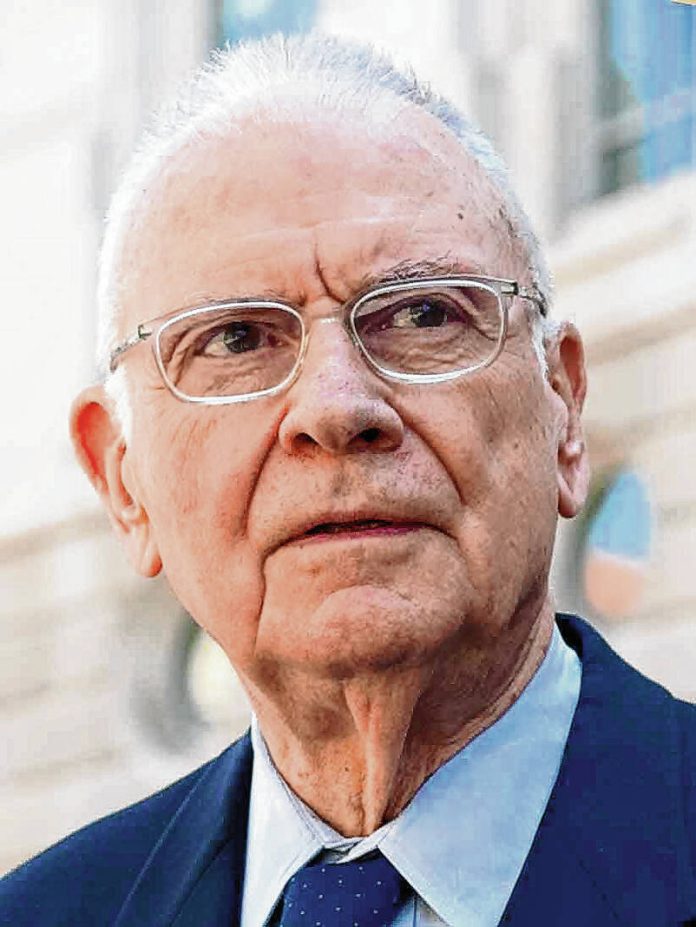Australia may not be the first nation to come to mind when we think about important U.S. allies. It’s on the far side of the globe, an area of the world we often neglect. Its largest city, Sydney, is a 22-hour flight from New York. Most Americans have never traveled there.
But, in fact, Australia is very important to U.S. foreign policy. It is “a vital ally, partner and friend,” in the words of the State Department, and a bulwark of freedom in the region. With shared democratic values and common interests, we have had diplomatic relations for 83 years.
The relationship was on display last month when Prime Minister Anthony Albanese made a state visit to Washington, the Australian leader’s ninth and highest-profile meeting with President Joe Biden. The two leaders said in a joint statement that they were inaugurating “a new era in U.S.-Australia strategic cooperation” focused on defense, the economy and climate change.
As is typical with state visits, Albanese and his partner, Jodie Haydon, were treated to pomp and pageantry, including a red-carpet welcome on the White House lawn, a 19-gun salute, a lavish black-tie dinner, a military band performance and the ceremonial exchange of gifts. But there was substance to the visit as well. Biden and Albanese advanced plans to partner in space exploration, artificial intelligence, applied research and regional finance. They pledged to work together to reduce greenhouse gas emissions and strengthen supply chains for critical minerals, which are important for clean energy.
The U.S. and Australia have a great deal in common. We’re both nations shaped by immigrants with language and culture that show the influence of British settlement. We are both large and diverse countries, demographically and geographically. We were allies in World War I and World War II. Australian troops fought with American forces in Korea, Vietnam, Iraq and Afghanistan.
We are also important trading partners, with two-way foreign direct investment totaling $261.5 billion, according to the State Department. U.S. trade and investment contribute 7% of Australia’s annual economy, and more than 1,000 American companies employ 320,000 Australians.
Arguably the most critical U.S.-Australian partnerships are focused on defense and security. Biden and Albanese didn’t mention China in their prepared remarks, but they didn’t have to. From the American perspective, Australia is a critical deterrent to China’s aggressive efforts to increase its influence in the Asia Pacific region.
The so-called AUKUS nations, Australia, the United Kingdom and the United States, are implementing plans to equip the Australian military with nuclear-powered, conventionally armed submarines and increase defense-related trade. The leaders welcomed Japan’s participation in military exercises with American forces.
The U.S., Australia, India and Japan make up the Quad, a security dialogue that includes a focus on peaceful space exploration and sustainable energy development.
The Biden-Albanese meeting came amid heightened global tensions. Just over two weeks earlier, Hamas launched a brutal attack on Israel, killing more than 1,400 people and taking hundreds of hostages. Israel responded with airstrikes and sent troops into Gaza. Biden and Albanese strongly condemned Hamas and supported Israel’s right to defend itself while cautioning against civilian casualties and a wider war.
Ukraine, meanwhile, has kept up its resistance to Russia’s brutal invasion and pleaded for more international assistance, and Australia announced it would provide $13 million in military support for Ukraine. In the South China Sea, Chinese vessels reportedly rammed a Philippine coast guard ship, and a Chinese fighter jet nearly collided with an American bomber in a night-time maneuver.
These are sobering reminders that the world is a dangerous place, and there are potential flashpoints on every hand. In such a world, we Americans need friends, and Australia is as solid and reliable an ally as we’re likely to find. The relationship deserves to be celebrated.
Lee Hamilton is a senior adviser for the Indiana University Center on Representative Government; a distinguished scholar at the IU Hamilton Lugar School of Global and International Studies; and a professor of practice at the IU O’Neill School of Public and Environmental Affairs. He was a member of the U.S. House of Representatives for 34 years. Send comments to [email protected].





